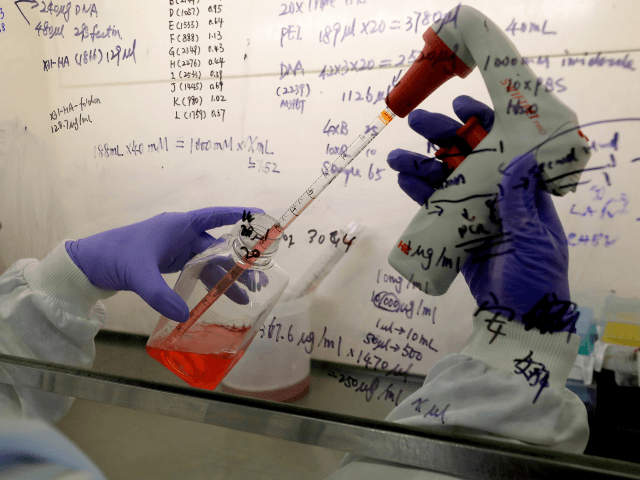India’s Central Drugs Standard Control Organisation (CDSCO), the nation’s regulatory body for pharmaceuticals, rejected a proposal to implement large scale trials of the Russian-developed — and Kremlin-endorsed — Sputnik-V vaccine candidate for Chinese coronavirus, Reuters reported Thursday.
CDSCO instead asked Dr. Reddy’s Labratories Ltd. to first conduct the study on a smaller scale. Dr. Reddy’s has partnered with the Russian Direct Investment Fund (RDIF), which is marketing the vaccine, as part of an effort to ensure mass distribution of Sputnik-V worldwide, even though it has yet to clear phase three of clinical trials.
Sputnik-V began phase three trials on September 1 with 40,000 participants, according to the Hindustan Times.
The regulators’ concerns over the limited availability of data from earlier trials – and no data from Indian subjects – reportedly motivated their decision to demand a smaller study from Dr. Reddy’s, according to Reuters.
“After detailed deliberation, the committee recommended that the firm should follow the regulatory requirements and conduct phase 2/3 trial in the country with proper monitoring for humoral and cell mediated immune response,” the committee handling the trial proposal said.
India has struggled under the pandemic, facing millions of infections — second only to the United States — and tens of thousands of fatalities.
Russian scientists published the early trial results in September, claiming the vaccine candidate produced a noticeable effect in all of the trial subjects, though the parameters of the study drew sharp criticism as it had no control group and used a small sample size, only including men in their 20s and 30s, per the Associated Press.
Though much of the international community has viewed the Russian vaccine with skepticism, nations struggling under the pandemic, particularly Russian allies, have expressed interest in receiving it. After Russian President Vladimir Putin announced state approval – not the completion of clinical trials – Philippine President Rodrigo Duterte, whose country has suffered a severe outbreak of coronavirus, volunteered to take the vaccine candidate in public and serve as one of its test subjects. As Duterte is a senior citizen with multiple health issues, however, he is not a viable test subject.
Belarusian President Alexander Lukashenko claimed in August that Putin promised Belarus would be the first nation to receive the Russian vaccine when it becomes available. Lukashenko cited Putin’s willingness to test it on his own family as a reason to trust Sputnik-V. “I believe him for a reason: he tested this vaccine on his family,” he said. Putin claims one of his daughters has received a dose, but never specified which one, and no evidence exists that either did.
Putin, for his part, promised to take a vaccine himself — though he did not explicitly name Sputnik-V, his spokesperson Dmitry Peskov implied he would choose the Russian-developed product — with the hopes of resuming international travel for diplomatic affairs.

COMMENTS
Please let us know if you're having issues with commenting.